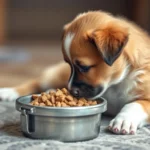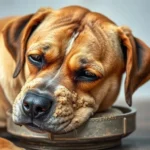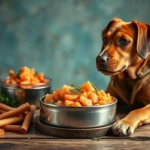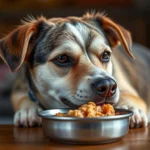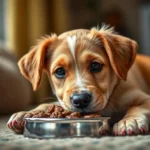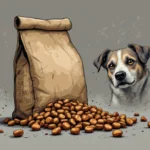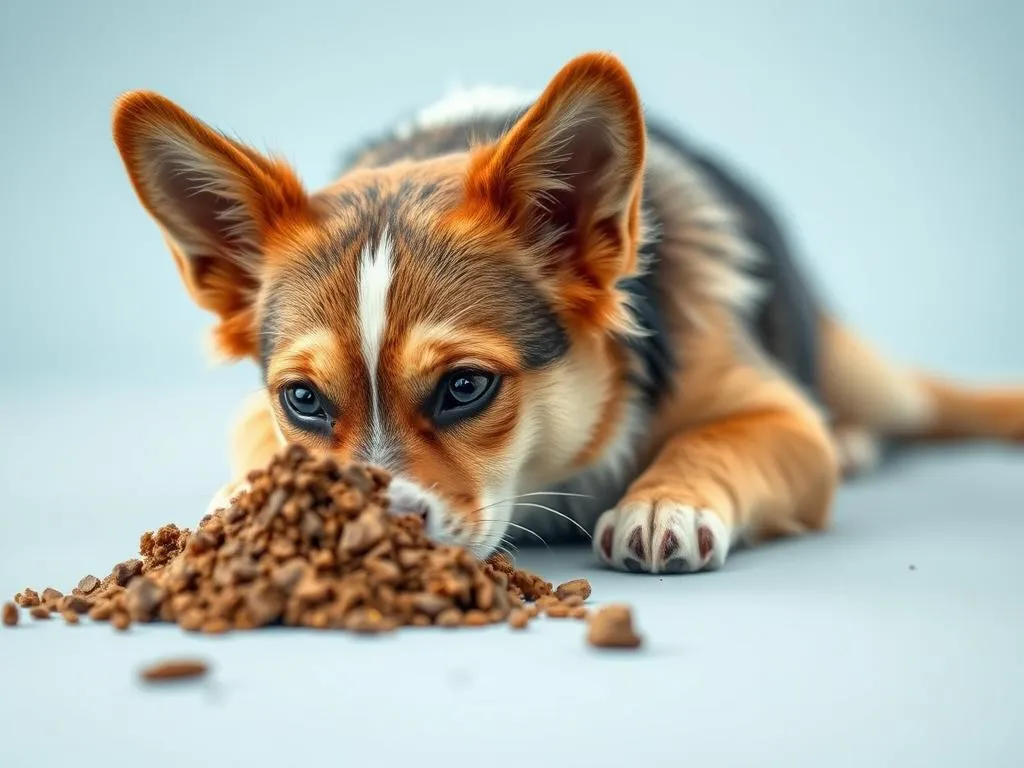
Introduction
Understanding dog behavior can be a perplexing endeavor for many pet owners. Dogs exhibit a wide range of behaviors that often leave their humans scratching their heads. One such behavior that sparks curiosity, concern, and sometimes disgust, is coprophagia—the act of eating feces. While this behavior can be alarming, particularly when it involves cat poop, it is essential to explore the underlying reasons why dogs engage in this habit.
The Basics of Dog Nutrition
Nutritional Needs of Dogs
To understand why dogs eat cat poop, we must first look at the nutritional needs of our canine companions. Dogs require a balanced diet rich in macronutrients such as proteins, fats, and carbohydrates, alongside essential vitamins and minerals.
- Proteins are crucial for building and repairing tissues, and they play a vital role in the production of enzymes and hormones.
- Fats provide energy and support cell growth, while also aiding in nutrient absorption.
- Carbohydrates serve as a primary energy source, although their importance can vary based on a dog’s activity level and overall health.
In addition to these macronutrients, vitamins and minerals are necessary for maintaining optimal health. They support various bodily functions, including immune response and bone health.
Common Myths About Dog Diets
There are several misconceptions surrounding dog diets that can lead to inadequate nutrition. One common myth is that dogs can thrive solely on a meat-based diet. While protein is essential, dogs also benefit from a variety of nutrients found in fruits, vegetables, and grains.
Another misconception is that homemade diets are inherently better than commercial dog food. While home-prepared meals can be nutritious, they often lack the balanced formulation that commercial diets provide. Consulting with a veterinarian is essential when considering dietary choices for your dog.
Understanding Coprophagia
Definition and Types of Coprophagia
Coprophagia is a term that describes the consumption of feces. It can occur in various forms, categorized mainly into two types: self-coprophagia (eating one’s feces) and allocoprophagia (eating feces from other animals, such as cat poop).
Why Dogs Eat Feces
Several factors contribute to this behavior:
-
Instinctual Behavior: Dogs are descendants of wild canines, who often consumed feces as a survival tactic to keep their dens clean and avoid attracting predators. This behavior may stem from their instinctual need to eliminate waste discreetly.
-
Nutritional Deficiencies: Dogs may resort to eating feces if their diet lacks essential nutrients. For instance, if a dog is not receiving sufficient protein, they might be drawn to the higher protein content found in the feces of other animals, such as cats.
-
Behavioral Issues: Anxiety, stress, or boredom can also lead to coprophagia. Some dogs may engage in this behavior out of curiosity or as a way to cope with their emotions.
Specific Reasons Dogs Eat Cat Poop
Nutritional Attraction
One primary reason dogs eat cat poop is its nutritional content. Cat food, typically richer in protein than dog food, can lead to cat feces being particularly appealing. When dogs consume cat poop, they might be instinctively seeking out the nutrients they lack from their own diet.
Behavioral Factors
In addition to nutritional reasons, behavioral factors play a significant role. Dogs are naturally curious creatures, and their exploration can sometimes lead them to undesirable snacks. Moreover, if a dog receives a reaction from their owner after consuming cat poop—whether it be laughter, shock, or scolding—they might continue the behavior to garner attention.
Health Implications of Eating Cat Poop
Potential Risks
While the act of eating cat poop may seem harmless, it can pose several health risks to dogs.
-
Transmission of Parasites and Diseases: Cat feces can carry parasites such as Toxoplasma gondii, which can be harmful to dogs and even humans. Other diseases transmitted through feces include giardiasis and various forms of intestinal worms.
-
Digestive Issues: Consuming feces can lead to gastrointestinal upset, including vomiting and diarrhea. Dogs may also experience more severe health issues if they ingest harmful bacteria or toxins present in feces.
Signs of Health Problems
If your dog has a habit of eating cat poop, it is crucial to monitor for any signs of health problems. Symptoms to watch for include:
- Vomiting
- Diarrhea
- Lethargy
- Loss of appetite
- Weight loss
If any of these symptoms appear, it is advisable to seek veterinary care promptly.
How to Discourage Coprophagia
Behavior Modification Techniques
Discouraging coprophagia requires a combination of training and behavior modification. Positive reinforcement methods can be effective in redirecting your dog’s focus when they attempt to eat feces. For example, using commands like “leave it” or “no” can help deter your dog from consuming cat poop.
Environmental Management
To reduce the likelihood of your dog accessing cat feces, implementing environmental management strategies is key:
-
Keep Litter Boxes Inaccessible: Placing litter boxes in high or enclosed areas can prevent dogs from reaching them. Consider using baby gates or keeping doors closed to restrict access.
-
Regular Yard Clean-up Practices: Maintaining a clean yard is vital. Regularly picking up dog waste and any stray cat feces can help minimize the temptation for your dog to engage in coprophagia.
Nutritional Strategies to Prevent Coprophagia
Balanced Diet Importance
Ensuring that your dog receives a balanced diet is crucial in preventing coprophagia. A complete and well-rounded diet can help eliminate deficiencies that may drive your dog to seek out feces for additional nutrients.
Supplements may also aid in providing digestive support. Digestive enzymes can enhance nutrient absorption, potentially reducing the likelihood of your dog feeling the need to consume feces.
Consulting with a Veterinarian
When addressing coprophagia, consulting with a veterinarian is essential. A professional can help assess your dog’s dietary needs and recommend appropriate adjustments. Regular health check-ups can also identify any underlying issues that may contribute to this behavior.
Conclusion
In summary, why do dogs eat cat poop? Understanding the underlying reasons for this behavior can help dog owners address it effectively. Whether it stems from nutritional deficiencies, instinctual behavior, or behavioral issues, recognizing the factors at play is crucial.
Focusing on a balanced diet, employing positive behavior reinforcement, and managing the environment can significantly reduce the incidence of coprophagia. By taking a proactive approach to your dog’s nutrition and behavior, you can ensure a healthier, happier life for your canine companion.
